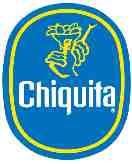Fruit Giant Chiquita Sued for Supporting Terrorists in Colombia Deaths
/From the NY Times [HERE]
By CARMEN GENTILE

MIAMI — Tania Julin remembers hearing the distinct sound of feet racing through the dark Panamanian forest moments before armed masked men burst through the door of the modest hut she shared with her husband.
Ms. Julin and her husband, Mark Rich, were missionaries living in a remote village just miles from the Colombian border when the gunmen — leftist rebels from the Revolutionary Armed Forces of Colombia, or FARC — descended on the village.
At gunpoint, Ms. Julin was ordered to pack a bag for her husband, and then Mr. Rich and two other men, Charles David Mankin and Richard Lee Tenenoff, were marched out of their homes, flanked by the gunmen who chattered in Spanish and fired into the air.
“That was the last time we saw ours husbands,” Ms. Julin said, recalling the night of Jan. 31, 1993.
A year later, FARC rebels abducted two other missionaries, Stephen Walsh and Timothy Van Dyke. The authorities said Mr. Rich and the four other captives were killed by the rebels, though their bodies have not been recovered.
Last week, Ms. Julin, who has remarried, and the widows of the four other men filed a lawsuit against Chiquita Brands International Inc., saying the company contributed to their husbands’ deaths by financing the leftist group.
The suit, filed in Federal District Court here, seeks unspecified damages for the families of the victims affiliated with the New Tribes Mission, based in Sanford, Fla.
The 63-page complaint asserts that Chiquita provided “numerous and substantial hidden payments” to the rebels in addition to weapons and supplies. That financing, the plaintiffs say, contributed to the deaths of the five men because Chiquita had in fact supported “acts of terrorism.”
Colombia and the United States have designated FARC a terrorist organization.
Ed Loyd, a spokesman for Chiquita, which is based in Cincinnati, said payments to FARC were made during the 1990s to ensure the safety of Chiquita employees working on banana plantations near the Panamanian border, a former stronghold of the leftist guerrillas.
Later, after FARC was forced out of the region by the right-wing paramilitary force known as the United Self-Defense Forces of Colombia, Chiquita continued the practice of paying for protection.
“We always acted to protect the lives of our employees, and the threat was very real,” Mr. Loyd said.
In March 2007, the company pleaded guilty to paying $1.7 million from 1997 to 2004 to the United Self-Defense Forces — also considered terrorists by Colombia and the United States — and agreed to pay $25 million in fines. The company has since admitted to also paying FARC.
Those developments prompted Ms. Julin and the other wives to seek compensation for their loss, she said.
“It took a while to sink in what they were admitting to,” Ms. Julin said. “It was a slow realization that they played a role in my husband’s death, that one of those guns could have been used to kill my husband.”
Chiquita officials disagree. In a telephone interview, Mr. Loyd said that the lawsuit’s assertion that Chiquita armed FARC rebels was “categorically untrue” and that the company would “vigorously defend” itself against the accusations.
Gary Osen, one of several lawyers for the plaintiffs, said his clients’ lawsuit — along with at least four others accusing Chiquita of complicity in killings carried out by the rebel groups — would be brought under the civil provision of the antiterrorism law.
The law states that any United States national “injured in his or her person, property, or business by reason of an act of international terrorism” can sue for damages in any appropriate federal court “and shall recover threefold the damages he or she sustains and the cost of the suit, including attorney’s fees.”
Adam Isacson, director of the Colombia program at the Center for International Policy in Washington, said compensation for the families of the slain men was not a foregone conclusion.
“It’s not a criminal case, so will the court require Chiquita to pay the families? I don’t know,” said Mr. Isacson, who has been following the litigation.
He said Chiquita was just one of many companies doing business in Colombia that paid “protection money” to rebel groups, the price of doing business in a notoriously violent country.
Ms. Julin said she and the others who lost their husbands to FARC do not see it that way.
“Chiquita was there to make money and fund these people,” she said. “How could anybody be involved in something like this without regard to the human lives lost?”






























































































































































































































































































